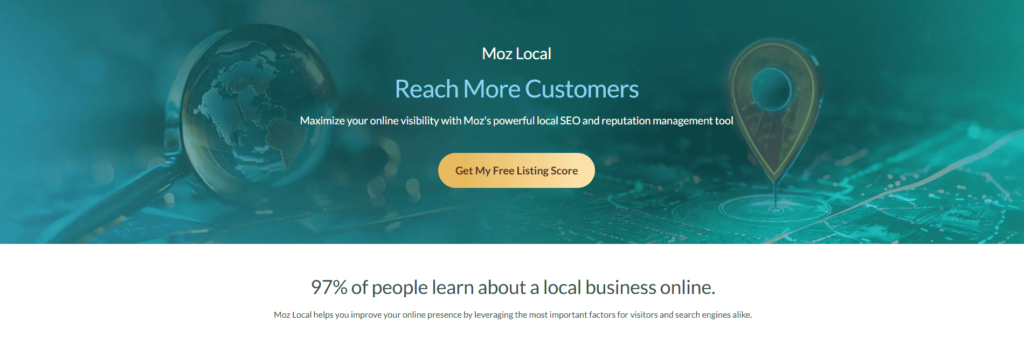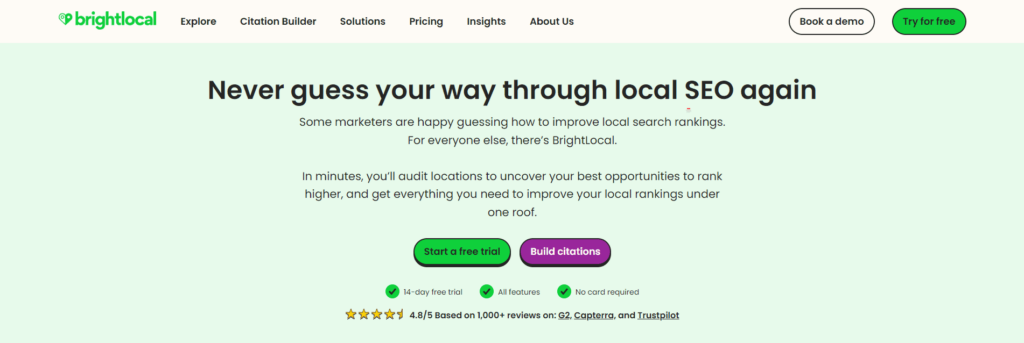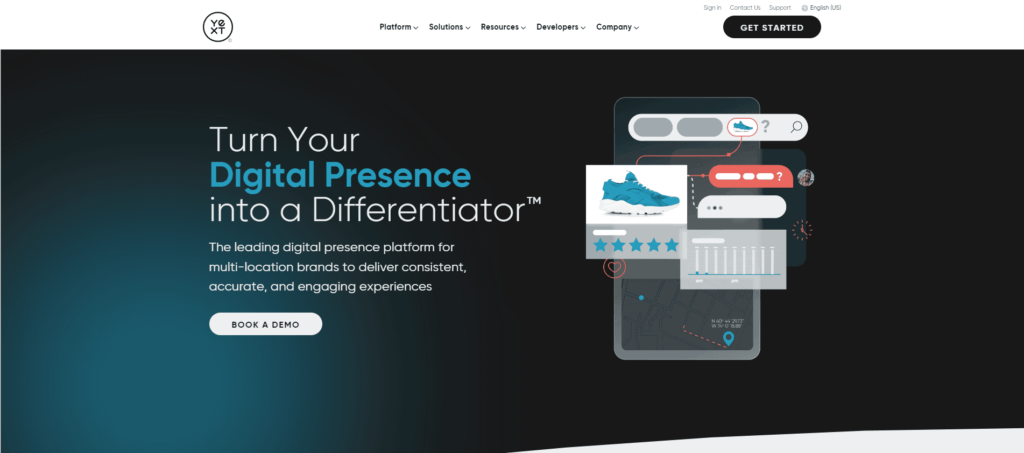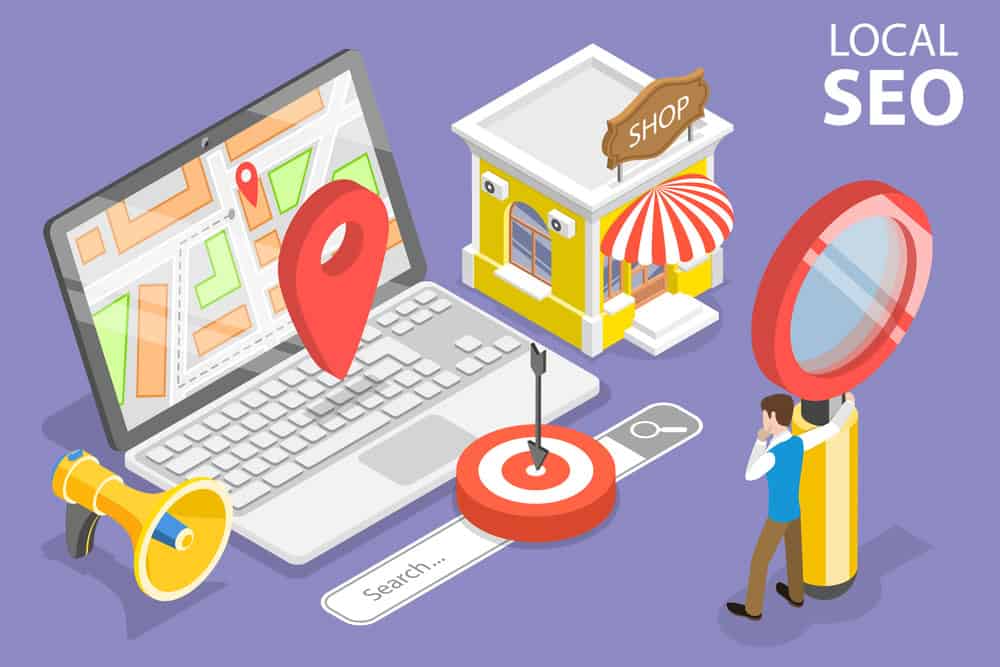As a small business owner, you’ve poured your heart and soul into building your business, but attracting local customers and standing out in a crowded market can be challenging. It’s like being a needle in a haystack, waiting for someone to find you.
But there’s a secret weapon that can help you rise above the competition and become the go-to destination for local customers: local search engine optimization (SEO). It’s the key to unlocking your business’s full potential.
In this ultimate guide, we’ll show you how to navigate the complex world of local search optimization and make your business shine. Buckle up, grab a notepad, and embark on a journey to transform your small business.
So What is Local SEO?
Are you a CBD retailer, health provider, or e-commerce platform looking to attract more local customers? Local SEO is the key to unlocking your business’s potential in your community!
Unlike general SEO, local SEO focuses on your local intent and optimizing your online presence for a specific geographic area. It’s like being the friendly neighborhood shop that everyone knows and loves.
Picture this: when someone searches for “CBD shop near me” or “best health services in NYC,” your business pops up at the top of the search results. That’s the power of local SEO!
To achieve this coveted spot, you need a well-rounded local SEO strategy. It’s like putting together a puzzle – each piece plays a crucial role in the bigger picture.
Why is Local SEO Important: Benefits for Businesses

When you boost your visibility in local search results, it’s like putting your business on the map – literally! With a well-optimized Google Business Profile, your business will appear in Google Maps and local packs of local organic results. It’s like having a big, bright arrow pointing directly to your shop.
Plus, when you claim your business on local directories and ensure consistent information, you build credibility and trust with potential customers. It’s like having a glowing recommendation from a trusted friend.
Local SEO is like a magnet for local customers. By targeting relevant keywords, you attract an audience that’s actively seeking your services. It’s like having a big, flashing “Open for Business” sign that draws in foot traffic.
But local SEO doesn’t just bring people to your physical location – it also boosts your online visibility. With customer reviews and local link building, you make it easier for potential customers to find and trust your business. It’s like having a digital welcome mat that leads them straight to your virtual door.
The result? Higher click-through rates, more conversions, and a boost in sales. It’s like hitting the jackpot in the local business game!
Local SEO vs. Organic SEO

Understanding the difference between local and organic SEO is essential for small businesses that want to maximize their online visibility and effectively reach their target audience.
Local SEO focuses on optimizing your online presence for a specific geographic location. This involves claiming and optimizing your Google Business Profile listing, building local citations, and creating location-specific content. Local SEO aims to make it easier for customers in your area to find and visit your business when searching for relevant products or services.
On the other hand, organic SEO takes a broader approach, focusing on improving your website’s overall visibility in organic search results for relevant keywords, regardless of location. This involves optimizing your website’s content, structure, and backlink profile to rank higher in search results.
While organic SEO can help attract customers from a wider geographic area, it may not always be the most effective strategy for small businesses primarily targeting local customers.
Local SEO Ranking Factors

Before you begin your local SEO efforts, you must know the secret sauce to climbing the local SEO ranks on Google search. Here are a few key ingredients:
Google Business Profile and Local Listings
Google Business Profile is like your business’s online calling card. It’s a free tool that lets you manage your presence across Google, including Search and Maps. It’s like having a direct line to potential customers.
To make the most of it, claim and verify your business listing. Provide accurate, up-to-date information – your business name, address, phone number, website, and hours of operation. Add high-quality photos that showcase your business’s personality. Encourage customers to leave reviews, and make sure to respond to them promptly. It’s like having a virtual customer service desk that’s always open.
Local Citations
If you want to boost your local SEO, you can’t afford to ignore local citations. Citations are online mentions of your business’s name, address, and phone number (NAP) on directories, websites, and social platforms. It’s like leaving a trail of digital breadcrumbs that lead customers straight to your door.
Building local citations is all about consistency and accuracy. You want to ensure that your NAP information is identical across all your citations, down to the last comma and abbreviation. Inconsistencies can confuse search engines and hurt your local rankings, so it’s essential to be meticulous.
To build citations, claim your listings on top local business listings like Yelp and Facebook. Then, branch out to industry-specific directories and local business associations. Remember hyper-local opportunities like community event listings and local sponsorships – these can be powerful sources of local citations and community goodwill.
Reviews and Social Proof

Customer reviews significantly impact your local SEO ranking factors and local search rankings. Encourage satisfied customers to leave positive reviews on your Google My Business profile, Yelp, or other relevant review sites. Whether positive or negative, responding to reviews demonstrates your engagement and commitment to customer satisfaction.
Social proof extends beyond just reviews. Active engagement on social media platforms and receiving testimonials strengthen your business’s credibility. Highlight positive feedback on your website or share customer success stories on social media to build trust with potential customers.
Local Keywords and Content Strategies
Navigating local SEO can be challenging, but local keywords and content strategies are your roadmap to success. Sprinkle your content with relevant local keywords using tools like Moz Local and BrightLocal to make your business visible to local customers searching for your offer.
However, keywords alone won’t suffice. Create content that speaks directly to your local audience, addressing their unique needs and interests. Optimize your blogs, service pages, and FAQs with those local keywords to rise to the top of local search results.
Creating geo-specific landing pages targeting different service areas or locations to further boost your local SEO. Mention local events or community news in your blog posts to add a local flavor and keep your audience informed and engaged.
Local Link Building
Local link building is like a secret handshake that can open doors to higher local search engine rankings and more potential customers. When reputable websites in your area link to your site, it shows search engines that you’re popular and trustworthy, making a difference in local search results.
To get those coveted local links, be a valuable member of your local community. Sponsor or participate in local events, partner with other local businesses, and reach out to local media outlets or blogs for coverage or mentions.
When creating content for local link building, focus on topics your local audience cares about. Create guides that tackle local issues, highlight upcoming events, or offer insider tips only a true local would know.
You can even sponsor local events to attract the attention of the press and bloggers who will link to the event page on your site. Promote that content to local sites and influencers, but focus on quality over quantity, seeking links from reputable, locally relevant websites related to your industry or niche.
Local Schema Markup
Schema markup is structured data that uses a standardized format to provide additional information about your website’s content. It’s like labeling each piece of information, making it easier for search engines to categorize and interpret.
For local businesses, schema markup is crucial. Using local business schema types, you can provide search engines with key information about your business, such as your name, address, phone number, hours of operation, and more. This makes it easier for search engines to guide local customers straight to your door.
Schema markup also enhances your website’s appearance in search results. Rich snippets allow you to display additional information, such as star ratings, reviews, and pricing, directly. Many website platforms and content management systems offer built-in tools and plugins to help you add schema markup, making it easier to communicate with search engines in their native language.
Mobile Optimization

In today’s mobile-first world, having a mobile-friendly website is a must-have for any business that wants to succeed in local SEO. Mobile optimization is about creating a seamless, user-friendly experience that adapts to any screen size or device.
Responsive design ensures that your website’s layout, images, and content automatically adjust to fit the screen of any device. Mobile optimization also involves optimizing your website’s loading speed, ensuring that it loads quickly and efficiently on mobile networks.
To achieve this, you’ll need to compress images, minify code, and leverage browser caching. The benefits of mobile optimization extend far beyond user experience, as Google has made it clear that mobile-friendliness is a key ranking factor in local search results.
Local SEO for Multi-Location Businesses

If your small business has multiple locations, you’ll face unique challenges regarding local SEO. But don’t worry – with the right strategies in place; you can ensure all your locations are visible and attractive to potential customers in their respective areas.
One key aspect of local SEO for multi-location businesses is creating separate Google Business PRofile listings and location pages for each business location. This helps search engines understand that each location is a distinct entity with its unique address, phone number, and other relevant information. Optimize each listing and location page with relevant local keywords and content and encourage customers to leave reviews for each location.
Another important consideration is maintaining consistency in your NAP (Name, Address, Phone Number) information across all your online listings and citations. Inconsistencies can confuse search engines and potentially harm your local search rankings.
Local SEO Tools
Local SEO tools are essential for businesses looking to improve their visibility in local search results and attract more customers from their local area. Here’s a detailed overview of some popular local SEO tools, their benefits, proper usage, and pricing:
Moz Local

Moz Local helps businesses manage their online listings across various directories and platforms. It ensures that your business information is accurate, consistent, and up-to-date across the web.
Consistent and accurate business listings improve your business’s visibility in local search engines, prevent customer confusion, and increase the likelihood of customers finding and choosing your business.
Sign up for Moz Local (starts at $129 per year for a single location), submit your business information, and the tool will distribute it to various directories and platforms. Monitor your listings regularly and update them as needed.
BrightLocal

BrightLocal is a comprehensive local SEO tool that offers a range of features, including local search rank tracking, more local searches, listing management, review monitoring, and local SEO audits.
The tool helps you monitor your local search performance, identify areas for improvement, and track your progress over time. It also simplifies managing your online reputation and gathering customer feedback.
Set up your BrightLocal account, add your business locations, and configure your tracking and monitoring settings. Use the tool to regularly audit your local SEO performance, track your search rankings, manage your online reviews, and optimize your local listings.
Plans start at $29 per month for a single business.
Yext

Yext is a platform that helps businesses manage their online presence across multiple directories, websites, and apps from a single dashboard. It ensures that your business information is consistent and up-to-date across the web.
By maintaining accurate and consistent business information across various platforms, Yext helps improve your local search visibility, build trust with customers, and drive more foot traffic to your business.
Sign up for Yext, input your business information, and the platform will distribute it to its network of directories and partners. Use Yext’s features to manage your listings, monitor reviews, and analyze your performance.
Pricing varies based on business size and specific needs. Contact Yext for a custom quote.
Local SEO Checklist
Want to make sure you’re covering all your bases when it comes to local SEO? Here’s a handy checklist to keep you on track and help you optimize your online presence for local search success:
- Claim and verify your Google My Business listing
- Optimize your Google My Business profile with accurate, up-to-date information and high-quality photos
- Build local citations on relevant local business directories and platforms, ensuring consistent NAP information
- Create location-specific pages on your website for each of your business locations
- Optimize your website content with relevant local keywords and phrases
- Encourage customers to leave reviews on your Google My Business listing and other relevant platforms
- Engage with your local community by participating in events, sponsorships, and partnerships
- Create locally-focused content, such as blog posts highlighting local events or insider tips
- Implement local schema markup on your website to provide search engines with structured data about your business
- Ensure your website is mobile-friendly and loads quickly on all devices
- Monitor your local search rankings and online reputation regularly and adjust your strategy as needed
What is Local SEO: Final Steps
Congratulations on making it to the end of this ultimate guide to local SEO! By now, you should have a solid understanding of what local SEO is, why it matters, and how to leverage it to skyrocket your small business. But the journey doesn’t end here.
Measuring the success of your local SEO efforts is crucial, and you need to focus on key performance indicators (KPIs) to gauge your progress. Track your local search rankings, organic traffic, click-through rates (CTRs), and conversions to get a clear picture of your local SEO performance. If you notice any areas where you’re falling short, take action to refine your strategy and focus on tactics that drive real results.
Alchemy Leads‘ local SEO work helps promote your business online in your location. We employ the best practices to develop and execute strategies that deliver results and increase your local leads and clients. Check out our local SEO services to get a custom quote from us.
